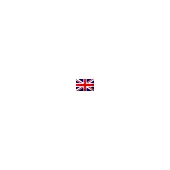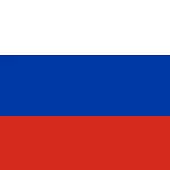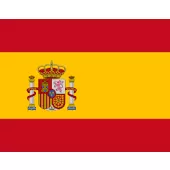
Veterinary Health license for Animal Products or Animal Waste
A veterinary health license for animals, animal products or animal waste is a necessary procedure to ensure public health and safety. This license is issued by the General Organization for Veterinary Services "GOVS", through the competent department for veterinary quarantine to ensure compliance with veterinary health standards. The conditions and documents required for this license shall be clarified below:
What is the Required Documentation for a Veterinary Health license?
An application to import or export animals, animal products or waste, to be submitted to the competent veterinary quarantine department, specifying the type and number of animals, animal products or waste, the purchase destination, the shipping and arrival destinations, the expected date of arrival of the shipment and the means of transportation.
Procedures for obtaining a veterinary health license for animals, animal products or animal waste
- The application to import or export animals, animal products or animal waste is submitted to the competent veterinary quarantine department.
- The licensing authority (the competent veterinary services department) pays the license application fee.
- The licensing authority shall take the necessary measures in terms of inspection, health conditions, packaging techniques, or vaccinations procedures for animals or birds, before issuing an export license.
- If meat or animal products are exported or imported and are inspected and found to be unfit for consumption or spoiled, the competent authorities shall immediately seize and destroy the import consignment without the owner having any right to oppose.
- For animals that are exported abroad for a limited period and then returned to Egypt, or animals that are brought in by transit, or are imported on condition that they are re-exported abroad but after they have stayed in Egypt for a certain period; it is required that their description is recorded in detail, and that a metal number sign or tattoo is placed on them so that they can be distinguished, and therefore re-exported without an export permit.
Rules and Regulations You Need to Know:
- The consignment of imported animals or birds, their products or animal waste must be accompanied by a veterinary health certificate. The certificate has to be submitted to the veterinary quarantine representative upon arrival of the consignment and before unloading; provided that it meets the following criteria:
- The certificate must be issued by the competent government veterinarian and it should be certified and sealed by the competent government authority in the exporting country.
- The certificate must state the name of the sender and recipient, a statement of the number of animals and products, their type, manufacturing entity, description and port of export.
- The certificate must include the following health data, based on the type of animals or products, as explained below:
1- For Cows and Buffaloes:
- The countries from which they are imported must be free of Rinderpest and Contagious Bovine Pleuro-Pneumonia (CBPP).
- The countries from which they are imported must be free of FMD (foot-and-mouth disease) for at least 6 months prior to export.
- These animals must be tested within 15 days prior to export against TB (tuberculosis), using the comparative single tuberculin test, brucellosis using the joint aggregation test, and trichomonas. The results have to be negative. The test certificate must state the date, place, and method, along with a detailed description of the tested animal. The herd from which the animals were taken has to be tested against brucellosis using the Ring Test and show negative results.
- Animals should be selected from a herd free of the following diseases:
- Trichomoniasis
- Fetal nevi
- Infectious granulomatous vaginitis, as determined by laboratory examination.
- The animal must be vaccinated against FMD (foot-and-mouth disease) in breeds A and OXE within a period of (14:60) days prior to export.
- The animal must be free from skin diseases; mainly: ringworm, scabies, smallpox and warts.
- The animal stool must be tested for liver fluke eggs within one month prior to export and proven free of them.
- The animal must be free from john's disease, Fever of unknown origin (FUO), coccidiosis, pericardial effusion, listeriosis, leptospirosis, and leukemia. The herd from which the animal is selected must have been free of these diseases during the two years prior to export.
2- For Bovine release calves imported for fattening:
- The countries from which they are imported must be free of Rinderpest and Contagious Bovine Pleuro-Pneumonia (CBPP).
- The countries from which they are imported must be free of FMD (foot-and-mouth disease) for at least 6 months prior to export.
- The animal must be vaccinated against FMD (foot-and-mouth disease) in breeds A.O.C within a period of (14:60) days prior to export; except for disease- free countries where the vaccine is not used, provided that this is stated in the certificate.
- These animals must be tested within 15 days prior to export against TB (tuberculosis), and proven negative.
- Animals must be free from pathological respiratory symptoms and selected from herds free of them
- The animal must be free from all kinds of skin diseases.
- The animals must have been treated with a dose against liver flukes within 25 days prior to export, and the consignment must be accompanied by the second dose given to the animals after their arrival.
- These animals are subject to the quarantine periods and vaccination procedures prescribed for released animals.
- Imported animals must be fattened after release in areas far from the density of local livestock, and must be under veterinary supervision. They are not permitted to be traded or transported to any other places except directly to government slaughterhouses.
3- For cows, buffaloes, sheep and goats (imported for slaughter):
- It must be free from FMD (foot-and-mouth) disease.
- It must have been vaccinated against rinderpest, infectious pleuropneumonia, FMD or FC with vaccines and procedures approved by the Veterinary Health Administration in Egypt, provided that the vaccination was carried out within a period of not less than 21 days and not more than 3 months before its arrival at the port of arrival or the country of import, in case the country of export is an infectious environment.
4- For release sheep and goats:
- The country of origin must be free from rinderpest, infectious pleuropneumonia, FMD or FC and smallpox during at least 6 months prior to export.
- The animals must have been tested for brucellosis by serogroup test within less than 30 days prior to export and proven negative.
- The animals must not have been in contact with sheep or goats infected with FC, fusobacterium necrophorum, infectious and epidemic viral diseases, or anaerobic microbial diseases (soft kidney, lamb disease, black disease, and osteitis deformans) during the 60 days prior to export, and must have been vaccinated against these diseases within a minimum of one month and a maximum of 6 months before export.
- The animals must be free from scrapie for at least the 60 days prior to export, and that there has been no infection in country/ region of origin during the three years prior to export. The animals must not be the breed of previously infected ones.
- The animal must be vaccinated against FMD (foot-and-mouth disease) in breeds A.O.C within a period of (14:60) days before export.
- The animal must be vaccinated against Oropharyngeal/esophageal candidiasis.
- The animal must be selected from a herd free from the following reproductive diseases: vibriosis, trichomoniasis, coital exanthema, vesicular.
- The animal must be free from the following diseases upon shipment: bluetongue, john's disease, pericardial effusion, pseudotuberculosis, liver fluke eggs in stool, and coccidiosis.
5- For release and slaughter pigs:
- The farm where the animals are raised and the surrounding areas located within a radius of five miles must be free from cholera, plague, Swine erysipelas, FMD, and infectious pneumonia, for a least 6 months prior to export. Being free from swine cholera is waived if the pigs have been previously vaccinated with a vaccine approved by the Veterinary Health Administration in Egypt.
- The animals must have been tested for brucellosis by serogroup test within less than 15 days prior to export and proven negative.
6- For Camels:
- The country of origin must be free from rinderpest, FDM, and FC during the two months prior to export.
- The imported camels must be free from fly disease and skin diseases.
7- For Horses:
- The country of origin must be free from diseases of Glanders, Epizootic lymphangitis, horse plague, encephalitis, infectious pneumonia, and syphilis during for at least 60 days prior to export.
- They must have been tested with laxative and proven negative for at least 30 days preceding their arrival.
- They must be vaccinated against horse plague for a period of not less than three weeks and not more than six months before the consignment arrival, and if they have not been vaccinated, they must be isolated and vaccinated at the port of arrival.
8- For Dogs:
- They must be free from infectious and epidemic diseases.
- They must be vaccinated against rabies within a minimum of one month and a maximum of one year before their arrival. If not, they shall be vaccinated at the port of arrival.
9- For Birds & their eggs:
- Imported birds and flocks from which they are selected must have been inspected before export, and must all be free from PULLORUM DISEASE (diarrhoea alba) by means of a group test and other epidemic diseases. They also must not have been infected or exposed to plague, Newcastle disease, respiratory disease, leukosis, hepatitis, cholera, smallpox, or encephalitis during the sixty days prior to export. The region of origin must have been also free from infectious and epidemic diseases during the specified period.
- Eggs imported for hatching must be produced from birds that fulfill the requirements mentioned in the above item.
10- For Rabbits and similar animals:
- These animals and the farms taken from them must be free of Myxomatosis and Coccidiosis during the two months prior to export.
- It should be free from septicemia as well as skin diseases.
11- For Meat:
- They must be taken from animals slaughtered according to Islamic law in slaughterhouses subject to the veterinary supervision of the exporting country, and must have undergone a medical examination before and after slaughter, and proven free of common diseases.
12- For Chilled and Frozen Meat:
- They must be proven to be imported from countries evidently not infected with rinderpest or FMD (foot-and-mouth disease).
13- For Dried Meat:
- They must be proven to be imported from countries evidently not infected with rinderpest or FMD (foot-and-mouth disease). However, if this is not the case, the following requirements must be fulfilled:
- The bones must have been removed before export.
- The meat must have been left without freezing for three days immediately after slaughter.
- The meat must have been processed, and the previous procedures must have been carried out in a prepared facility under the full veterinary supervision of the exporting country.
14- For Cooked Meat:
- They must be proven to be imported from countries evidently not infected with rinderpest, FMD, fowl plague, Newcastle, fowl cholera, or pneumothorax. However, if this is not the case, the following requirements must be fulfilled:
- The bones must have been removed before export.
- The meat must be heated to a visible temperature.
- The previous procedures must have been carried out in a prepared facility under the full veterinary supervision of the exporting country.
15- For Meat Products & Waste:
- They must be proven to be imported from countries evidently not infected with rinderpest, FMD, fowl plague, or Newcastle for at least 6 months prior to export.
- The feathers, entrails, heads, and legs must have been removed.
16- For glands, extracts, secretions and internal organs of animals and birds:
- They must be proven that they were imported from non-infected countries.
- They must have been taken from animals or birds slaughtered in public slaughterhouses under veterinary supervision, and have been subjected to examination before and after slaughter and proven to be non-infectious to humans or animals.
17- For Semen:
- They must be proven to be imported from countries evidently not infected with rinderpest, and FMD.
- It must be taken from male animals free of brucellosis and other diseases transmitted by semen.
18- For animal products and their residues:
- The data on the shipment must indicate the type of consignment, and that the original production facility is free from contagious or epidemic animal diseases; with the exception of non-tradable samples, raw hair, fur, and pig hair.
- Shaving brushes, raw hair, fur, or pig hair must have been melted to be free from the seeds of FC germs.
19- For animal missions:
- The country from which they are imported must be free of infectious and epidemic diseases within two months prior to export, especially rinderpest, FC and FMD.

 English
English
 العربية
العربية
 中文语言
中文语言
 русский язык
русский язык
 Le français
Le français
 Española
Española


